- Home
- William Bell
Forbidden City Page 17
Forbidden City Read online
Page 17
“Um, I’ve been thinking of that, Xin-hua. I think I can go on my own from here. I can walk. And maybe I can hitch a ride from a taxi or a tour bus.”
I didn’t really believe that and I guess she didn’t either. She shook her head without even thinking about what I had said.
“No, no. We go together.”
I tried to explain my thinking to her, but she wouldn’t listen. The only part she agreed with was that we probably wouldn’t need the camcorder anymore, and therefore the battery packs, and she shouldn’t have them on her, so we should do as I said and throw them in the river. But that was it.
“You can’t go alone,” she insisted. “When PLA stop you, you can’t speak Chinese and they can’t speak English. You need me interpret for you if trouble.”
So I tried to make a deal with her. “Okay, I’ll let you stay with me till we get to the foreign hotel compound.”
“No, still too far from airport. I stay with you until Airport Guest House. Then I back to my house.”
We talked some more, but trying to get her to change her mind was like taking the Great Wall apart brick by brick. So we tossed the camcorder and the battery packs out into the river. After a few moments’ thought I threw the audio cassettes into the river too. I knew there was no way I’d forget what was recorded on them. I put the video cassettes and the two rolls of film into my pants pockets. Then we untied the box, tipped it off the che, and stamped it flat. We pushed the che out onto the road and away we went.
The tall poplars along the road cast long shadows ahead of us. Xin-hua had left her coat on the back of the che but she kept her cap on against the sun. I had to keep on my coat so my white arms wouldn’t show. The breeze at our backs had picked up and seemed to push us towards the roadblock we knew would be waiting.
Two troop trucks were parked at the gate to the foreign hotel compound and four PLA stood outside the gate house. We got past without being challenged. There was some local traffic on the road here — a few bikes, a couple of donkey carts. They must have been from the farms, coming back empty from the free markets in the city.
We saw the roadblock long before we arrived at it. It was set up at a “Y” in the road. The road to the airport curved to the left and just past the “Y” there were enough PLA to storm a small village. Two troop trucks blocked the road, leaving enough room between them for one vehicle to squeeze through.
As we approached, three shots rang out.
Xin-hua flinched. I felt that cold hand of dread again, pinching my spine and squeezing my chest. I could hardly breathe. The thudding of my heart resonated in my skull.
“Xin-hua! Stop and turn around!”
She kept pedalling, head down. “Remember, Shan Da. Don’t talk.”
I reached into my pockets and took out the 8mm cassettes. I opened my pants and jammed the cassettes down the front, inside my underwear. The rolls of film I tucked into my shirt pocket buttoned my coat to the neck.
There was no use lying down and doing my sleepy worker impersonation. Nobody would believe I could sleep through the sound of gunfire. So I sat with my legs dangling over the side of the che. I wanted to be able to get down fast if I needed to.
A taxi passed us just as we drew near, so we waited behind it while the soldiers checked it out. The four passengers and driver handed over their papers. There were a dozen or so troops sitting smoking and talking on either side of the road. Two lean, hard-looking guys were doing the checking. On the right side of the road an armoured personnel carrier was parked in the trees. The hatch was open and a soldier manned the machine gun on top.
Off in the trees to the left I could see a couple of tents. Next to one of the tents three men in civilian clothes lay on the ground. I couldn’t see them very well through the trees, but I could tell they wore light shirts and dark pants.
And I knew by the way they lay, arms and legs tangled, that they were dead.
“Xin-hua!” I hissed, “we’ve got to —”
Just then the taxi was waved through the slot between the front bumpers of the trucks. One of the guards barked at Xin-hua. She pedalled up closer and stopped when the second soldier held his hand up.
The two guys here weren’t like the men we had seen in the city. Both were wiry, with cold eyes and straight faces. They had their AK 47s slung on their backs and, in spite of the heat, they had their helmets and coats on. They had four pockets on their coats. They were officers.
The first one snapped a question at Xin-hua. She answered him, probably spinning out the story she had dreamed up, that we were from one of the nearby brigades and were on our way to the Airport Guest House to see if we could drum up a little hauling business with the che. She forced a little laugh but the soldier’s face was like a slab of stone.
He said something else and she talked some more. She was going on and on about something that I couldn’t follow at all. But I could see the soldier was getting impatient. He turned to the troops sitting at the side of the road and snapped out an order. Three of them jumped up, threw down their cigarettes and ran over to the che.
I could hear the panic creeping into Xin-hua’s voice as she started explaining again. Two of the troops stepped forward and hauled her bodily from the che, gripping her arms. The third started going through her pockets. One of them said something and the other two laughed. I hopped off the che, wincing when I landed on my right leg. I had taken only one step towards Xin-hua before the second officer swung his machine gun from behind his back in a lightning move and jabbed the barrel into my stomach. I gasped, unable to move. The pain was incredible.
One of the soldiers yanked the green ID from Xin-hua’s pocket and spoke to the officer. I heard her name in the rush of words.
The officer clipped out another order and the soldier with the gun barrel in my stomach lifted it, pushing off my glasses. He uttered an exclamation of surprise when he saw my eyes, then brought the gun barrel higher to flick my cap off my head. He said something to me.
Xin-hua spoke up. I heard bu hui, not able. She was telling them I was deaf and dumb. The officer in front of me just laughed. Lowering his gun he reached out one hand and yanked at the front of my jacket. Two buttons popped off and fell onto the road. Then he ripped my shirt open.
“Ta shi wai guo ren!” he crowed. He’s a foreigner!
I knew we were sunk now. And I knew Xin-hua was in deep trouble. I looked over at her. The two troops still held her with her arms pinned to her sides. Her eyes were wide with panic and she breathed in short, quick gasps.
A storm of talk followed. The two officers and Xin-hua all spoke at once. I heard the word foreigner a few times and Xin-hua said Jia na da ren several times. She was telling them I was a Canadian, so I figured she was trying to cover for me. The talk stopped for a second.
“Ni shi xue sheng, dui bu dui?” The officer interrogating her asked. You’re a student aren’t you?
“Bu. Gong ren.” No. A worker.
Her head snapped back when he slapped her. If the two soldiers hadn’t been holding her the force of the blow would have knocked her down.
“Wait! Leave her alone! She isn’t —”
The officer drove his gun barrel into my stomach again and I dropped to my knees, gasping, hands to my stomach.
The officer with Xin-hua barked an order and the two troops began to lead her off towards the trees.
“Shan Da, don’t fight them! Do as they say!” she yelled over her shoulder. One of the soldiers slugged her on the side of the head and she fell to her knees. The other kicked her in the back. Then they hauled her to her feet and dragged her into the trees.
I turned to the officer who had been talking to her. “Please, she has nothing to do with this! Please don’t hurt her!”
He pointed between the troop trucks, towards the airport, with his gun barrel. “You go.” He shouted. “Now!”
I took a limping step towards him. “Please,” I pleaded, “please don’t hurt her. Let her go. Please!”
I tried to calm my voice. Maybe I could get to him if I could sound more reasonable. “Look, is there anybody here who speaks English?” I asked.
I heard a car pull up behind me as I tried again. “Please let me talk to your commanding officer. I just want to —”
Crack!
The sound of a single gunshot. I turned to look into the trees where they had taken Xin-hua.
“Oh god, no,” I moaned. “No, no, noooooo!” I heard my own voice rise to a scream. I flew at the officer, fingers tearing at his face. “You bastard! You bastard! You bloody bastard!”
Iron hands clutched me from behind and tore me away from him. He swung the AK 47 around and up, catching me sharply under the chin, sending a shock wave of pain along my jaw and knocking me backwards into the man behind me. He pulled back the action of the machine gun. A rapid-fire flow of words burst from behind my head. The man in front lowered his weapon, scowling, turned and shouted to the troops from the side of the road who had moved towards us. Three of them grabbed me roughly, one on each arm and one behind. The one behind grabbed a handful of my hair and yanked back.
The troops dragged me bodily away. There was a lot of furious yelling. A car door opened. The three troops manhandled me to the taxi that stood there, engine running. There were two men in the front seat staring straight ahead. The back door was open. The soldiers bent me over and shoved me into the cab so hard I smashed my head on the window crank of the opposite door. Someone bent my legs towards the small of my back, sending a searing spear of pain into my right calf. The car door slammed and the taxi roared away.
The taxi careened along the road for about five minutes, then swung up the long curved ramp to the airport terminal and screeched to a stop. Both men jumped out of the cab. I lay there, dazed, trying to shake some sense into my head. The door at my feet opened and the taxi driver tapped my leg, saying something. I struggled slowly into a sitting position. I winced when he took my legs and swung them out the cab door. Once my feet were out and on the pavement, it was easy for him to reach in and help me out of the car and onto my feet.
I stood swaying a little and turned to see the other passenger rushing through the glass doors with a big suitcase in his hand. I think I said thank you to the cab driver, then limped towards the door myself. Once inside, I felt like I was swimming in a soup of noise and confusion. I just couldn’t take it, couldn’t get my bearings. People rushed past, some pulling suitcases on wheels, this way and that. Voices in three or four languages blasted over a loudspeaker.
I took a few steps and stopped again.
I’m not sure how long I stood there in the chaos but I slowly came to my senses. Sort of. I looked around at the crazy house of the airport. There were ticket check-ins straight across from me. The milling crowd collected in thick clots at each wicket, pushing and pressing, waving tickets and shouting. I limped to a counter with a sign above it: INFORMATION.
The man behind the counter exclaimed something in Chinese when he saw me and pulled a clean handkerchief out of his pocket. He handed it to me. I wiped the blood from my face as best I could.
Without waiting for me to speak, he asked, “What country you from?”
“Canada.”
“Canada upstairs.” He indicated a wide stairway at the far end of the hall. “This all United States down here.”
Silently I turned and hobbled to the stairs. People rushed by, not seeming to take any notice of me. I got to the stairway and was relieved to see an escalator there. But it wasn’t running. Gripping the handrail with both hands, I pulled my way up the wide staircase.
At the top, I stopped. I felt dizzy and held onto the bannister for a moment. When the woozy feeling passed I wiped my face again. The cut on my forehead was still bleeding. I walked along a wide hallway. People sat along the walls, talking quietly, suitcases and backpacks lined up in front of them. I came to a wide lounge full of people. One wall of the lounge was a big picture window. A counter stretched along the far wall. People stood before it in quiet lines. A sign on the wall said Information Registration.
I limped towards the sign, drawing stares from the tired, scared-looking people around me. A woman in front of me turned away from the counter, almost bumping into me.
“My god!” she said. “Excuse me. I’m sorry.” She hurried away, passport in hand.
The woman behind the counter had a big loose leaf binder open in front of her with dog-eared sheets of paper filled with names. Her eyebrows jumped and her mouth dropped open when she looked up and saw me. But her voice was cool and professional.
“Do you need medical aid?”
“Is my father here? I have to find my father. Or Eddie. Maybe Eddie is here. Lao Xu isn’t here because he’s dead. They killed him.”
“What’s your name, son?”
“They killed Xin-hua, too. They tried to kill me, but Xin-hua made them leave me alone. She saved me. She got me out.”
“Son, listen. What’s your name? You tell me your name, okay? Are you Canadian?”
“Shan Da.”
“What?”
“It means big mountain,” I explained. “Because I’m tall.”
“Son, what’s your name. What’s your father’s name?”
“Um, Ted. Ted Jackson.”
She ran her finger down the lists, up and down, up and down. “Edward Jackson? Canadian? From Toronto?”
“He’s a news cameraman.”
“He’s here, son. At least, he registered here … let me see … yesterday.”
I turned away from the counter and walked slowly back down the centre aisle of the lounge examining all the people in the chairs and on the floor on my right. When I reached the end of the aisle I turned and started back, this time scanning the chairs on the window side.
My father was sitting in the last seat in one of the rows, closest to the window.
His long legs stretched out into the space between the seats. His jeans were rumpled and creased. He wore a while T-shirt. He hadn’t shaved in days and his long, light brown hair was greasy and uncombed.
He moved. He drew his legs towards him and leaned his forearms on his thighs. He stared at the floor between his feet.
I limped towards the window and stopped in front of him. He didn’t raise his head at first. The people on either side of him murmured to one another, sneaking glances at me.
After a few moments my father looked up and the flat light from the window fell across his pale, haggard features. His blue eyes seemed dull and without energy. I realized he didn’t recognize me as I stood before him in torn, dirty Chinese clothes, face bloody, cap pulled down over my dyed hair. He looked down at his feet again.
Then he looked up again. He searched my face, his eyes coming alive.
My father rose slowly to his feet, saying nothing, keeping his eyes fixed on my face. When he had reached his full height his mouth began to quiver and tears streamed from his eyes. He stepped towards me and put his arms around me and his body shook with deep sobs.
I stood with my arms hanging at my sides. “Dad,” I said, “they killed her. They killed Xin-hua. They killed Lao Xu. They killed everybody.”
Dad told me afterwards that we got a plane out early the next morning. The airport was a total crazy house. A lot of the people who boarded the plane that the Canadian government had chartered to take us out had no baggage, and some, like me, had no ID or passport. We all got past the airport security anyway. People from the embassy shepherded everybody along. The only people the security guards — they were regular airport security, not PLA — the only people they stopped to question were those who looked Chinese. I don’t remember anything about the flight home. I was sedated the whole way. So this time I was the one who was “blasted.”
We flew directly to Vancouver, then through to Toronto. The entire trip took about twenty hours. I slept through almost the whole thing, even in the transit lounge at Vancouver Airport. Mom met us at Toronto an
d drove us home in the dark.
By the time she pulled her Audi into our driveway the sedatives had mostly worn off. My body still felt tired and heavy and my mind was a bit numb, like I wasn’t too interested in what was going on around me. I was just sort of passive. That’s the only way I can describe it.
Mom and Dad clucked and fussed around me. First thing they did was order me upstairs to have a bath. I guess I smelled pretty bad. My Chinese clothes were dirty and bloody, with a couple of days’ sweat soaked into them.
The bathroom was clean and dry, the overhead light shining on the blue and white tiles, and the air smelled of soap and shaving lotion. Dad was standing beside me dumping bubble bath into the water, telling me I’d probably have to get a really short haircut because the shoe polish wasn’t going to come out very easily. I unzipped my pants and let them fall to my ankles, then pushed down my underwear.
Four 8mm video cassettes clattered to the tile floor.
“What the —” Dad exclaimed. “Alex! Are those what I think they are?”
The sight of the cassettes and the noise they made when they hit the floor snapped me back to reality. “There’s two rolls of film in my shirt pocket,” I said. “I put them there when —”
Dad gathered up the tapes, retrieved the film, and put them on the sink, then helped me into the bath. I lowered myself down into the hot, soapy water.
Mom came into the bathroom. She put the lid of the toilet seat down and sat there chain-smoking while I talked. She was well-dressed, as usual, and had a new hairdo. Her hands shook as she lit her cigarettes.
Dad sat on the floor, leaning against the cabinet, shuffling the tapes like thick black cards. He looked whacked, and he needed a bath as much as I did. And a shave.
A few minutes later I was giving Mom and Dad a condensed account of what had happened to me since the night of the fourth. Dad knew Lao Xu and Xin-hua were dead because I had told him at the airport. But when I got to the part where Xin-hua was murdered, Mom started crying. Her carefully made-up face twisted in anger and she kept saying, “How could they? How could they?”

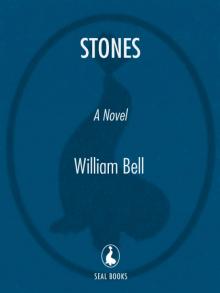 Stones
Stones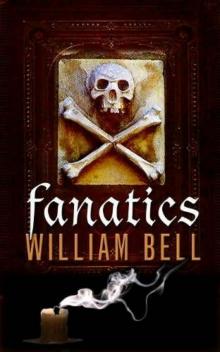 Fanatics
Fanatics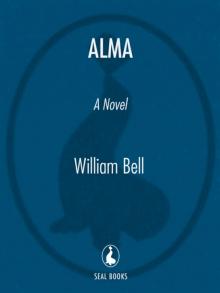 Alma
Alma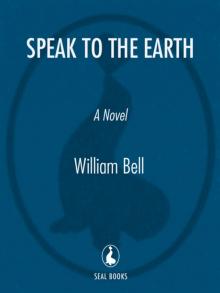 Speak to the Earth
Speak to the Earth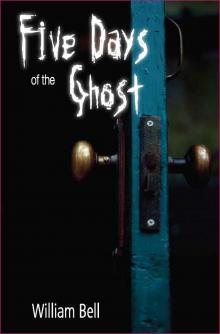 Five Days of the Ghost
Five Days of the Ghost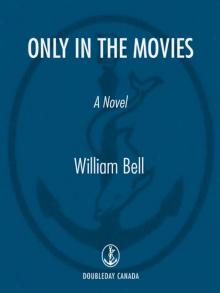 Only in the Movies
Only in the Movies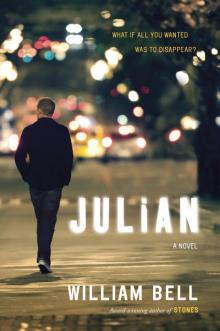 Julian
Julian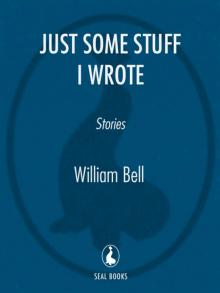 Just Some Stuff I Wrote
Just Some Stuff I Wrote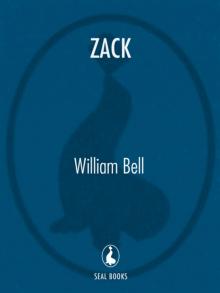 Zack
Zack Forbidden City
Forbidden City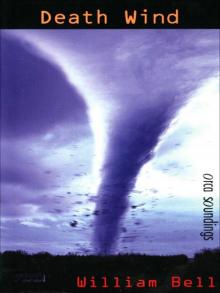 Death Wind
Death Wind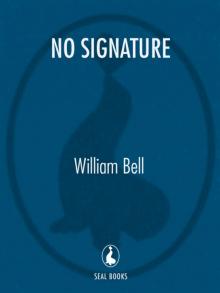 No Signature
No Signature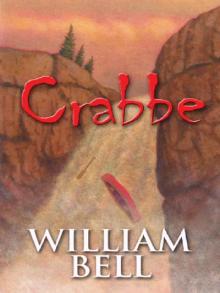 Crabbe
Crabbe